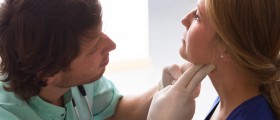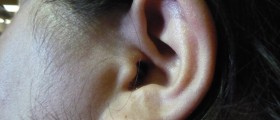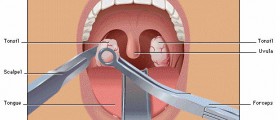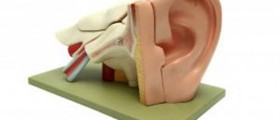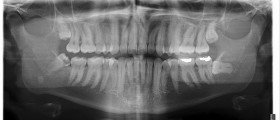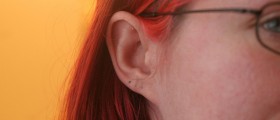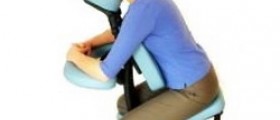Loading...
Loading...
Proper identification of carotidynia is to be made by determining whether it is migrainous, classic or arteriosclerotic in origin. Then treatment becomes easy. Due to wrong diagnosis there is often irregularity and dalay in the treatment of carotidynia.
Anti-inflammatory agents found to be very helpful for the treatment of classic carotidynia. For Instance, indomethacin (Indocin), 50 mg to be given to the patient three times daily for some days. If the case persists then a course of steroids may be recommendated. Prednisone, 30 to 40 mg to be given to the patient daily, after some days it should be reduced according to the symptoms and improvement status.
Migrainous carotidynia usually do not respond to anti-inflammatory agents. Many times steroids are found to be not helpful for the treatment. Drugs such as prophylaxis, ergotamine, methysergide and propranolol found to be helpful for migtranous carotodynia.
Arteriosclerotic carotidynia affects mostly to the people over 60 years of age.The doctor must always examine the patients for carotid bruits and go for a proper vascular history. Thorough Doppler studies and angiography can confirm of the correct diagnosis of the diesease variety, after which careful treatment and right drugs are choosen for the cure.
Bookmark This Page:
Loading...
Carotidynia is the oldest identified pain condition. Carotidyna can be defined as the neck, face, ear and head pain. The pain is continuous, dull and throbbing and it is felt over the carotid bifurcation (on the temple), the pain may stretch to the ipsiliteral mandible, eye, ear and cheek.
Carotidynia occurs due to dilatation or distention of extracranial arteries on the affected side.Carotidynia is described by experts to be of viral origin. But until now a little is known about Carotidynia. The symptoms of carotiynia aggravate by chewing and swallowing and contralateral movements of head.
Carotiynia neck pain can be confused with tonsillitis, otitis and other neck realted diseases. So the diagnosis should be done carefully for the proper identification from other diseases.
The occurance and cause of carotidynia is unkown. Carotidynia takes place during the cold weather.The pathophysiology of the syndrome is not well known and understood.
Carotidynia is more pevalent in women than in men.
Proper identification of carotidynia is to be made by determining whether it is migrainous, classic or arteriosclerotic in origin. Then treatment becomes easy. Due to wrong diagnosis there is often irregularity and dalay in the treatment of carotidynia.
Anti-inflammatory agents found to be very helpful for the treatment of classic carotidynia. For Instance, indomethacin (Indocin), 50 mg to be given to the patient three times daily for some days. If the case persists then a course of steroids may be recommendated. Prednisone, 30 to 40 mg to be given to the patient daily, after some days it should be reduced according to the symptoms and improvement status.
Migrainous carotidynia usually do not respond to anti-inflammatory agents. Many times steroids are found to be not helpful for the treatment. Drugs such as prophylaxis, ergotamine, methysergide and propranolol found to be helpful for migtranous carotodynia.
Arteriosclerotic carotidynia affects mostly to the people over 60 years of age.The doctor must always examine the patients for carotid bruits and go for a proper vascular history. Thorough Doppler studies and angiography can confirm of the correct diagnosis of the diesease variety, after which careful treatment and right drugs are choosen for the cure.
Bookmark This Page:
Loading...
It's lower in the throat than the tonsils. It started as a radiating dull pain every once in a while on its own on the left side and is now only triggered when I turn my head all the way to the left. This has been going on for about 3 weeks now and I have been eating large amounts of chocolate for the last month. (I'm talking like binge eating amounts....I know, bad.) I read chocolate can cause acid reflux and some people here seem to think their symptoms are related to that.
Now do I see and ENT about this or a GI?
